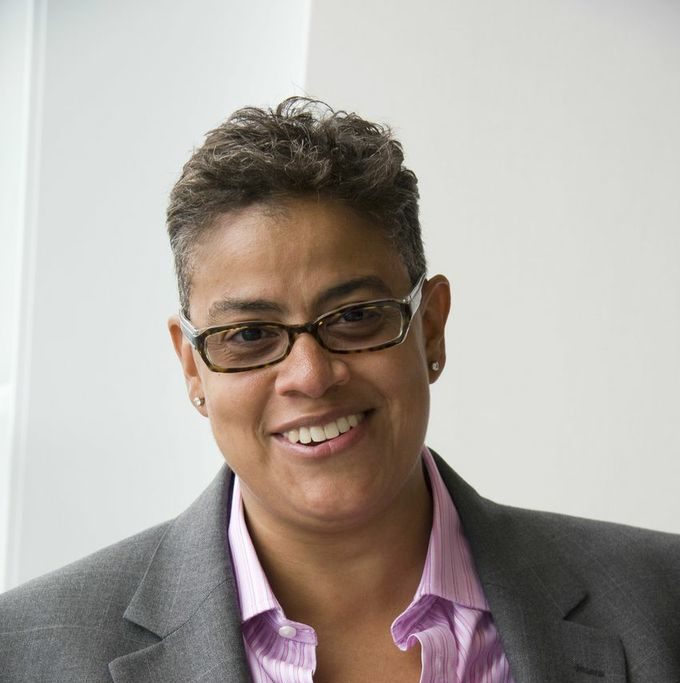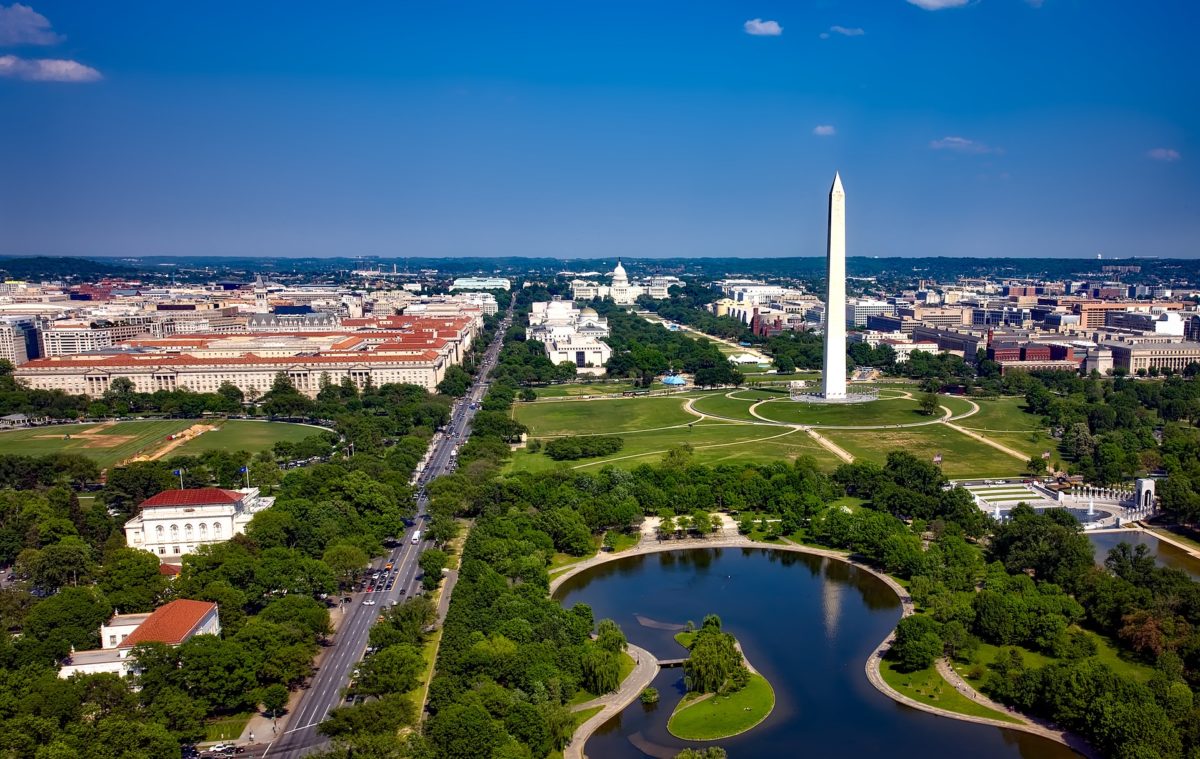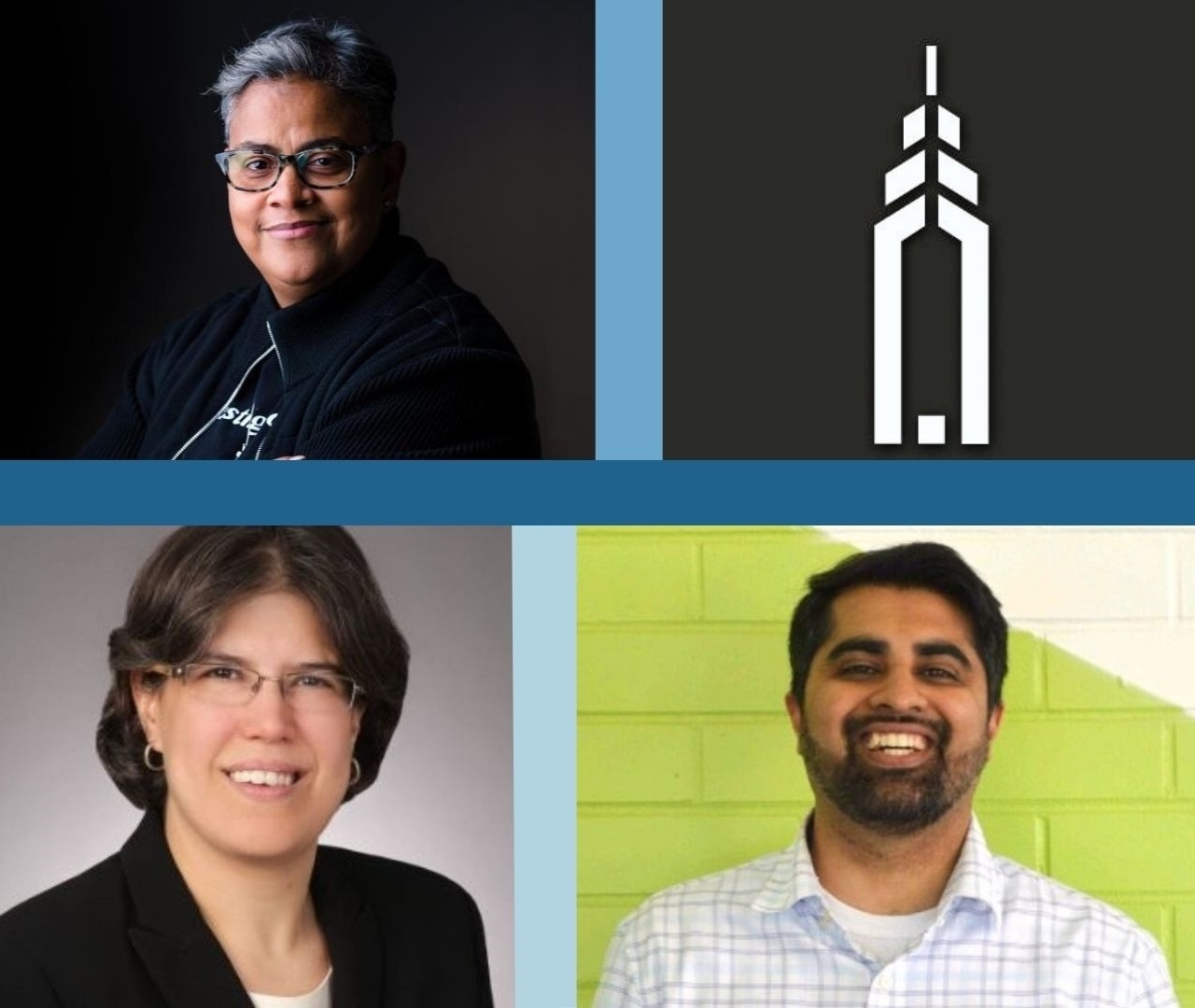
This editorial article is a part of Startup Health Month of Technical.ly's 2022 editorial calendar.
Long a stronghold for govtech and cybersecurity, DC and its surrounding areas have built into a booming startup space over the past few decades.
With plenty of connections in and out of the city, a more affordable market than Silicon Valley, proximity to the medtech holds of Maryland and the cyber and internet hub in NoVa, and more than a few funding opportunities, DC is becoming an ever-appealing place for founders to get their start.
It’s not too hard to look up from your at-home or in-person workspace, dramatically gaze off into the distance and say: I want to start a startup! What comes next, though, is a little more complicated.
But we get it. Even if you think you’re making the right moves, it’s overwhelming to think about how to launch a company. With input from local founders, mentors and funding entities, we created a guide — and accompanying resource list — to not only start a startup, but specifically detail what launching one in the DMV might look like. From capital to connections and more, Technical.ly has you covered.
See the DC startup resource listOf note: Reading this guide does not come with a guaranteed stamp of startup success. But if you do find it helpful, drop us a line about your company at dc@technical.ly.
Step 1: Get to know the region’s strengths.
OK, so you have the idea, but now what? Bob Smith, the director at incubator I-Corps from George Washington University, noted that many founders have plenty of ideas, but no idea what to do next.
A natural first start, after deciding you want to begin something in the DC area, he said, is to learn and understand the region, including its people, its strengths and its weaknesses.

Bob Smith. (Photo via LinkedIn)
“Especially if you’re a first-time entrepreneur, you don’t have a lot of connections and you don’t have a lot of access to resources. So you spend a lot of your time trying to build those and to understand the market,” Smith said, noting that “you can’t disrupt something you’re not immersed in or you don’t understand.”
He recommends trying out some of the free programming available at the area’s universities, but we’ll do our best to give you a one-paragraph crash course: DC proper features the obvious power player of the federal government, fueling many of the fedtech and govtech companies. It’s also a great spot for non-government organizations and nonprofits, and it’s produced some edtech giants like Blackboard, Class Technologies and MPower Financing. Northern Virginia hosts a huge cyber, software and cloud/data scene, and Maryland is big into life sciences and med/healthtech. That’s not to say there aren’t plenty of other opportunities in other industries, but you’re definitely in the right spot if your idea is in one of those sectors.
But that’s not all the region has to offer. Dahna Goldstein, chief investment officer at social impact incubator Halcyon, noted that DC is a very culturally rich place to be, with plenty of resources on top of what you need to start a business. While the city has a reputation for being all about fed and govtech, she said, there are plenty of social entrepreneurship and enterprise technology options.

Dahna Goldstein. (Photo via LinkedIn)
With that knowledge in mind, she recommends finding which part of the city you want to carve a spot for yourself in, and what it can do to help you find success.
“So for somebody starting a business in DC, what is it about DC that is particularly exciting to you?” Goldstein said. “Really understand what it is the city has to offer and what your company needs as it grows.”
And after you get to know the DMV, Smith said, double-check that it is the right place to be.
“Make sure that if you’re coming to DC, the ecosystem here is right for the business that you’re doing,” Smith said. If you’re not in one of these aforementioned industries, you might need to look a little harder to find specialized resources.
- Do this first: Get to know the entrepreneurship scene in the DMV. Reading this article is an excellent start, but you can also find some local pros to tell you what’s what.
Step 2: Tighten up your idea.
For Khuram Zaman, CEO of digital agency Fifth Tribe and adjunct professor for Georgetown University’s entrepreneurship program, many founders aren’t quite specific or unique enough in their ideas. But the more niche you are with a startup, the easier it is to find opportunities and connect with fellow entrepreneurs in your specific industry.

Khuram Zaman. (Photo via LinkedIn)
Founders, he said, also tend to spend a lot of time focusing on the problem part of developing a business, making sure that the solution they built is for a problem that actually exists. What then happens is that they forget about the flip side.
“What they really need to do is they need to talk to customers and make sure this is actually a solution that customers want, that they’re actually willing to pay for,” Zaman said.
If this sounds overwhelming, don’t worry: There’s a huge number (more than 80, specifically) of local coworking spaces, pre-accelerator programs, pitch competitions and more for you to talk out and test your idea.
- Do this first: Take a closer look at your idea. Can you make it even more unique? Then, consider if there’s a customer base for your product.
Step 3: Don’t forget the rest of the DMV.
For many DC-area startup advocates, an area strong point is the city’s unique proximity to Maryland and Virginia. It makes it possible for founders to float from the cyber corridor in NoVa, through DC’s govtech and nonprofit access point, and all the way up to Maryland’s medtech scene, and soak up all the expertise thoughout. The problem, Zaman said, is the fragmented nature of the DMV means that not enough founders know about what’s going on in their own backyards enough to make use of the available resources. (It’s something UpSurge Baltimore and the Greater Washington Partnership are working on.)
“There’s a lot of opportunities here in the DC area, it’s just a matter of connecting the dots,” Zaman said.

Melissa Bradley. (Courtesy photo)
For Melissa Bradley, managing partner of venture firm 1863 Ventures and cofounder of growth engine Ureeka, DC’s multiple access points and proximity to other locales are unique to the city. In larger cities like Chicago, there’s only one economic development agency available compared to the three (DC, Maryland and Virginia) available here. Even in New York City, she pointed out, while there’s an office for each borough, they’re very borough-specific, meaning “you cannot be in Harlem and go access the Queens economic development agency. That’s for the people in Queens.”
Still, even though, it’s accessible, there’s still work to be done to build the ecosystem web for use by young founders, said Mark Lawrence, managing partner at Inncuvate, a Maryland venture studio. One way to encourage this, he thinks, is to encourage new and old founders to do more storytelling around their company journey, good and bad. For Lawrence, it’s a way to signal boost what’s possible in DC startups and help build that connective infrastructure in the region.

Mark Lawrence. (Photo via LinkedIn)
“That needs to mature, and nothing is going to be a solid, one tool fits all, but using storytelling [to raise] the visibility and some of the additional connectivity we have, I think that would be a way that we can grow,” Lawrence said. “That will give it identity, too, because we have this kind of scene but it’s still working on its full identity.”
The startup ecosystem disconnect, Bradley thinks, also comes from a general resource disconnect throughout the region. In many areas, there’s still a lack of education in the tech and entrepreneurship world, as well as a lack of economic institutions, both venture capital and even regular banks, in many low-income areas. And with transportation and broadband deserts still existing, particularly in the area East of the Anacostia River in DC, founders are sometimes quite literally unable to move across the DMV. But, she noted, the good news is that once you are in, there are plenty of people to help you get a leg up.
“The good thing is because we’re so small, if you get to one person, the whole of the chain will happen,” Bradley said. “The grapevine will be there for you because we all do know each other.”
- Do this first: Figure out where in the DMV you’re meant to be. Then, look outside that area for opportunities in the surrounding states, cities and towns.
Step 4: Get the $$$.
OK, so you’ve got the idea, you’ve found your lane — what next? The dream of every founder: funding. With its multi-million dollar contracts and funding deals getting inked every day, it can seem like an intimidating place for a new founder. But our experts say the DC funding world is more than meets the eye.
DC is built to be for if you’re going to sell to the government, but actually … there’s almost a hidden venture world here,” Smith said. “People will leave a large defense contract, and they’ll see an opportunity and they’ll go and do a spinout from that.”

The capital. (Photo via Pixabay, used under a Creative Commons license)
But those options aren’t limited to the local venture capital firms funding govtech darlings (although you can check out the 75+ firms we’ve previously compiled). Bradley — who founded a funding incubator, so listen up — says that many accelerators, incubators and funds throughout the city and beyond are actually working together to distribute funds. 1863, for example, has previously partnered up with Capital One, Black Girl Ventures, Halcyon and even DC government for a small business fund. What that means is that even if you don’t win the end-of-accelerator pitch competition, you still might be catching the eye of an investor.
Plus, Bradley added, the funding institutions are starting to look beyond big tech and into smaller startups. Even Mayor Muriel Bowser, she said, has also made an effort to support tech startups, creating an incubator with Howard University and expanding a Startup in Residence program into DC in recent years.
“You see more and more financial institutions creating instruments and funds and pots of money that are also supporting entrepreneurship and small business and technology,” Bradley said. “And I would say, 80 to 85% of all those efforts have also added an inclusive lens to recognize that there’s still quite a bit of Black and brown people in DC.”
- Do this first: Don’t be intimidated! Find some accelerators, incubators and pitch competitions for seed funding throughout the DMV (see Step 3). Then, talk to some other founders about where they found funding. And don’t forget — VC might not be right for you.
Step 5: Be patient, and know you’re in the right place.
While the DC (and surrounding area) startup scene is far from perfect, it’s growing and changing every day, and oftentimes, for the better. Not to brag, but DC was ranked as the #11 startup ecosystem in the world by Startup Genome in 2021, and Arlington, Virginia and DC took the top two spots in SmartAsset’s most recent annual Best Cities for Women in Tech report.
On the funding side, it just closed out a $5 billion dollar VC funding year in 2021, more than double the total for 2020; nearby Baltimore, too, had its biggest year ever. And area entrepreneurs don’t plan on stopping there.
“There’s a huge spike in people registering businesses and that’s a great sign because more innovation, more employment, more tax revenue, that helps keep us competitive,” Zaman said.
We’re not saying you have to trust the process, because there’s always room for improvement. But know that if you’re someone looking to build something, you’re a part of our (not so) little startup ecosystem, and everyone wants to see it thrive.
“It’s going to take some time but there are plenty of resources,” Bradley said. “They may not all seem readily available at your fingertips, but once you get there, people literally bend over backward to help you because we do understand how important small business is to this region.”
- Do this first: Keep up the grind, but sometimes you just need to know you’re doing the right thing.
Join the conversation!
Find news, events, jobs and people who share your interests on Technical.ly's open community Slack

Philly daily roundup: Student-made college cost app; Central High is robotics world champ; Internet subsidy expiration looms

Delaware daily roundup: Early-stage loan help; Jobless rate drops below 4%; $700k grant for industrial park

Philly daily roundup: Earth Day glossary; Gen AI's energy cost; Biotech incubator in Horsham


